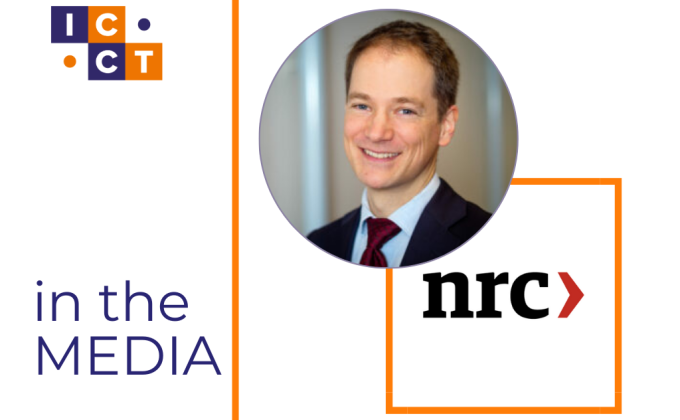After last week’s press conference addressing the recent series of attacks in Germany, Chancellor Angela Merkel was widely criticised for repeating her mantra ‘we can do this’, facing a population increasingly worried by Islamist terrorism. ‘Attacking our values of community, sowing fear and hatred between different cultures and religions’ – these are, according to Merkel, the main goals of terrorists. More unity should therefore be the appropriate reaction, along with the continuation of the open-border policy for refugees that the government has been pursuing for almost a year now. Fear, Merkel continued, though understandable, should not inspire nor guide policy decisions.
Criticism from politicians of the CSU, the slightly more conservative so-called sister party of Merkel’s CDU, emphasised that a message of continuity to an increasingly fearful electorate can hardly be an adequate response. Bavaria’s Minister of Economic Affairs, Ilse Aigner, for instance, argued that emphasis on action and a changed course is needed to address feelings of insecurity among the population.
She may be right: in the absence of a satisfactory course of action from the political mainstream, German voters have, much like their counterparts in France, Hungary, Austria, and the United Kingdom, turned to right-wing populist parties for a more promising solution to Islamist terrorism, which they perceive to be an outgrowth of a more general encroachment by a hostile religious community, permitted by mainstream parties under the umbrella of multi-culturalism. The ‘Alternative for Germany’, a right-wing party which received up to 24% in recent state elections, calls for a complete halt of immigration from the Middle East and North Africa and increased deportations of asylum seekers to their home countries to address the problem of terrorism.
Beyond the appeal of having easy solutions to complex problems, the populist politicians’ rhetoric reassures voters that they are being understood: their fear of Islamist terrorism is not only acknowledged but encouraged, their self-esteem boosted by politicians who finally recognise their concerns and act upon them. Fear of terrorism is thus not only justified but seen as the basis for policy decisions, a simple logic that voters have been demanding in vain from mainstream politicians.
While it is difficult to determine a general dominant factor influencing the degree of terrorism impact and the resulting fear within society, we know that public leadership and discourse play a significant role in how a constituency perceives and interprets a crisis situation. Fear management after a terrorist attack, while certainly not the only goal of politicians after a crisis, is nevertheless a key part of so-called ‘meaning making’, with politicians deliberately choosing frames communicating their answer to the questions of the causes and nature of, as well as the remedies to, a crisis.
The problem of how to manage fear after terrorist attacks is not a new one and the current wave of Islamist terrorist attacks in Europe by no means unprecedented. An interesting case to look at in the search for answers is Israel during the Second Intifada, in which the country experienced varying levels of political violence between 2000 - 2005. Studying Israeli leaders’ rhetoric during this four and a half year period, it is evident that they propagated a divisive narrative, emphasising the values of one community being under threat from another, and calling for unity and resilience within the Jewish community in order to cope with the frequent attacks.
Studies attesting to a comparatively limited psychological impact of the Second Intifada attacks on Israelis, despite heightened levels of second-hand exposure due to the small size of its population, seem to point to the success of Israeli fear management efforts. Israelis bought into the narrative of being under existential threat and coming together to defend the community’s values. It follows that acknowledging the legitimacy of their fears was the first step in overcoming them.
This is not to say that what has worked for the Israelis will necessarily also work for Europeans. On the contrary, the resulting discord and heightened sense of conflict between the Jewish and Palestinian communities is certainly not an outcome that European leaders would wish for their countries. Nevertheless, the lesson that citizens’ fears need to be acknowledged and taken seriously in order to be overcome is an important first step in counteracting the increasing polarisation of European societies. Rather than mindlessly propagating unity and ignoring the fears of an increasingly large part of the population, mainstream political leaders should do more to acknowledge the potential threat inherent in radical Islamism and thereby provoke citizens to rally in the defence of their communities’ values.
The challenging way forward for Merkel lies then in striking a balance between managing fear while at the same time preventing further polarisation and loss of cohesion among society’s groups. More thought should be given to constructing narratives of community values and identity to which people can connect and which they feel compelled to defend, while at the same time including within these narratives those groups of society who have hitherto been rejected by traditional paradigms of national or even European identity.
(Photo Credit: RP Online)








